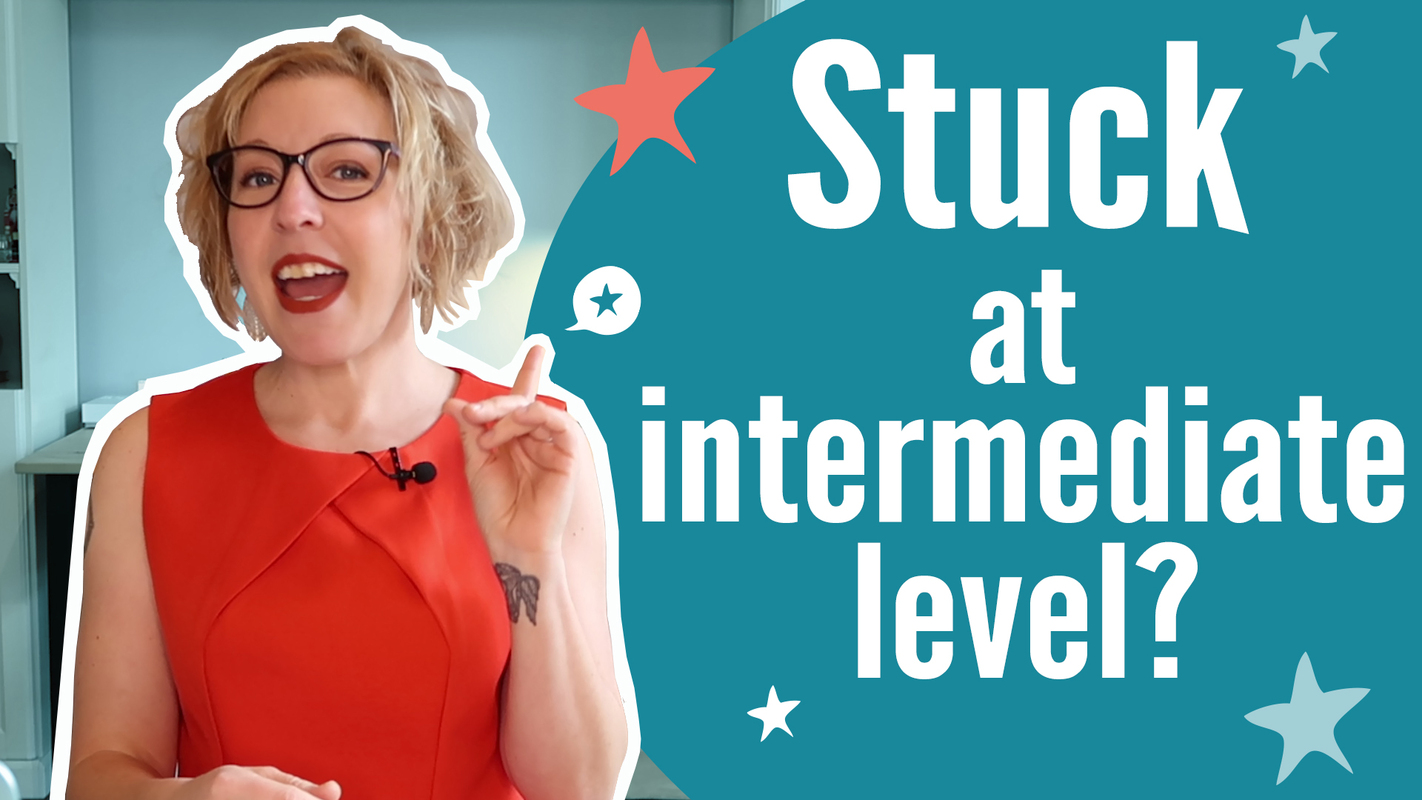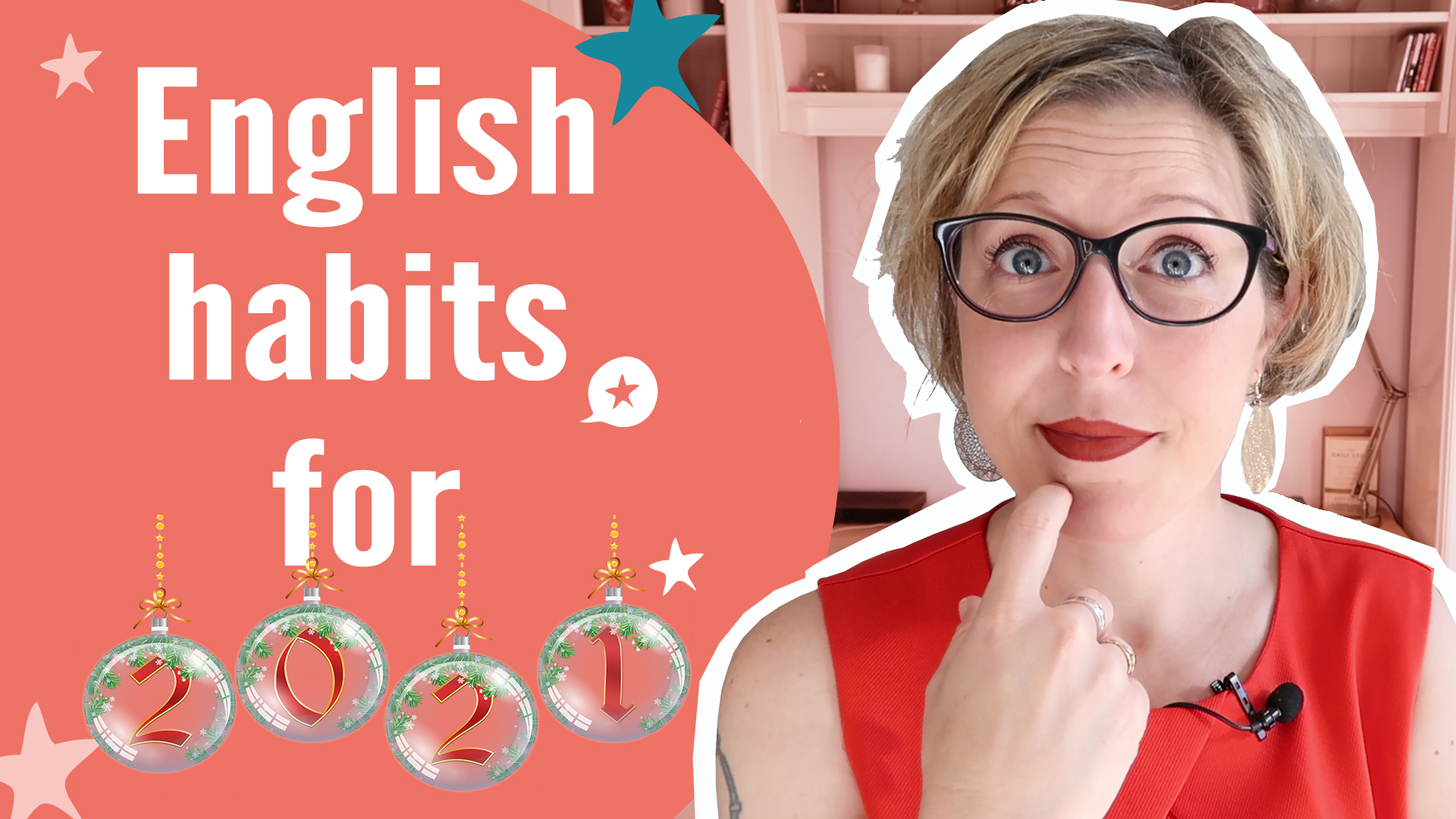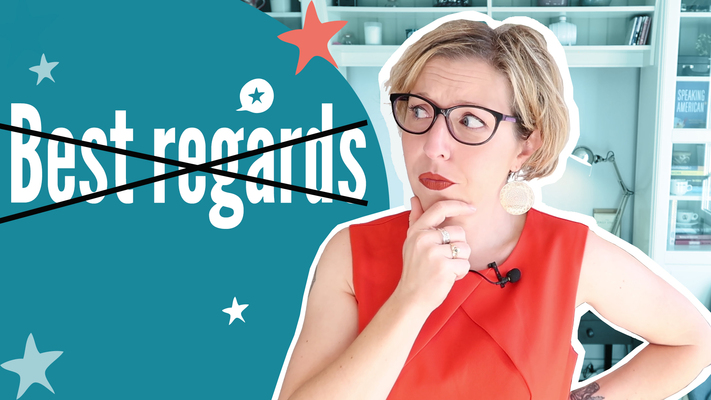
Woohoo, today’s the big day! We’re starting my new mini-series: “Master Business English with Virtual Immersion to go from intermediate to advanced level.”
Why do you still lack confidence speaking English, even if your level is not so bad?
Index
1. Let’s start with a quiz…
2. What is the intermediate plateau?
3. Stuck on the intermediate plateau? Here’s how you can progress faster.
4. What kind of activities can you do for natural learning and deliberate learning?
5. My question for you
1.Let’s start with a quiz…
Do any of these describe you?
- You feel blocked or hesitant. You can communicate your message, but you can’t always find your words.
- You worry you’re making too many mistakes in English.
- Or maybe you’re translating too much in your head.
- You don’t know why you feel this way, or what to do, and it’s super frustrating.
If you said yes to those questions, well, Congratulations!
Why?!
Because you’ve come a long way towards being confident in English!
You have reached the intermediate plateau.
And now…it’s harder to increase your English fluency.
2. What is the intermediate plateau?
You reach an intermediate level, your progress slows–you’ve hit the intermediate plateau.
When you’re a beginner, you always learn new things. It feels like constant progress!
But when you reach intermediate level, your English is ‘good enough’ for most conversations.
You can survive with your current level. But you don’t feel comfortable–or confident.
You’re doing things in English, but you’re not improving. It’s frustrating.
Don’t worry. You’re normal. Everyone hits the intermediate plateau.
Continuing to do same things you’ve always done–like watching Netflix or using English at work–isn’t enough.
You need to change your English routine…
3. Stuck on the intermediate plateau? Here’s how to progress faster.
The first step is to be more structured, with 2 approaches:
- Natural learning: “Absorbing” the language by exposure, “living” English
- Deliberate learning: Working on English, studying, “doing” English
Use resources and topics that are relevant and useful for YOU. Learning will be more interesting and motivating.
When you’re interested in a topic, you remember what you learn. Your brain performs better.
That’s why it’s difficult to memorize lists of vocabulary. You have no context, no connection, and no reason to remember.
4. What kind of activities can you do for natural learning and deliberate learning?
Natural Learning = living your life as you normally would–but in English.
Natural learning activities include:
- Listening to interesting podcasts. One that I enjoy: Lewis Howes’ School of Greatness
- Reading books or magazines in English for pleasure. I really enjoyed: Wild
- Watching TV: My favorite series of the moment: The Queen’s Gambit
- Using English on social media (You can participate in my free Intermediate Plateau Challenge, on Facebook, LinkedIn, and/or Instagram)
- Having conversations in English without specifically focusing on improving.
Deliberate learning = working on or studying English
Deliberate learning activities include:
- Reading the transcript of a podcast: Both the Faster Fluency Conversation Club and All Ears English podcasts provide transcripts for members.
- Creating flashcards: I like Quizlet, and use it to create vocabulary cards for my Faster Fluency Conversation Club podcast. Or create flashcards by hand!
- Listening exercises: Here’s a list of listening exercises & activities I’ve curated for you.
- Working with a teacher, like in one of my programs: Faster Fluency Conversation Club, or Business English Mastery
5. My question for you:
Are you stuck on the intermediate plateau? How do you feel about it?
Let me know in the comments below!
Looking forward to reading your comments!
Christina
P.S.
Episode #2 will arrive on Thursday. It will have a concrete, step-by-step virtual immersion day plan for you! Don’t miss it 😉
More good stuff...
Click the image to learn more








Hi Christina.
Firstly I wish you a happy and healthy new yeAR 2021.
I am deeply in the intermediate English level, as a lot of English learners.
Such as I see the thing is. I am tired to study grammar, there are so many exceptions in English that study them to remember is a waste of time, the only way to study them is to use them, reading, watching listening, have fun and having a pro at hand to discuss them.
As a teacher has to earn their living and this is usually expensive for just one a learner, there’s to do a mixture of both things.
I hope, having been useful.
Sincerely
Jaime
Jaime
Hi Jaime,
Good to “see” you again, and how have you been since our last exchanges in the Fluency Club? I hope you are doing well and staying healthy!!
I completely understand that you do not want to study grammar any more! For most people, that is the problem. They spent so much time studying grammar in school, in lessons, in books, etc., but not enough time actually speaking and using the grammar, so that it becomes natural and they do not need to think about the rules!
And you’re right, it’s a great idea to do a mixture of several approaches, not just individual lessons. Individual lessons are good, but as you said, they can be expensive, and they don’t address ALL your needs often. It’s best to do some individual lessons, some conversation practice, some exercises, and some English for pleasure too!
It’s like eating! You need variety and a balanced diet for it to keep you going!
Well Christina, that’s exactly what happens to me.
Hi Erwin,
You are not alone, it happens to everyone, no matter what they are learning!
But may I ask you another question: Are you doing anything specific to try to move to a more advanced level?
I understood whatever you spoke your English is very clear and neat if anybody speaks little speed am not able. To understand what they are speaking, especially when I go hospitals for Dr appointments i am not able to understand . I am trying to listen TV news Netflix movies but not able to understand.
Hi Vijaya,
Thanks for sharing with me, and if you have difficulties understanding TV news & Netflix, it’s normal! Many people think that if they just watch more and more TV in English, one day they will magically understand. That may be true, but it will take years!! A better, faster way: work on your listening skills with specific exercises that train your ear to “decode” the sounds of fast spoken English. (This is what we do in my online course Understand Real American English, for example).
At the doctor’s, one problem is also the very specific medical vocabulary, which you maybe do not know. If they speak fast, and use words you don’t know, it can be impossible to understand. But I have programs to help you with that! I’ll send you some information!
I am a B1+ learner (determined this by passing some test in the Net) and sometimes I simply can’t… (recognize?) fully absorb some of the lines characters say in a series or a videogame. Reading books in English is fine for me as I carefully read every and each sentence without rush but my listening skills and expressing my thoughts in person is left to be desired. I undersatnd grammar taught at tutoring classes without many problems (but doing excersises not perfectly of course) and because of that I feel stuck at Intermediate plateu as I learn something new at tutoring classes only. That makes me feel not that confident in my skills and abilities. I hope I will feel progress after I gratuate from school and start studying in a university. Thank you you encouraged me to write my first comment and good luck to you 🙂
Hi Cristina and thank you for this video !
I confirm that I feel stucked at this intermediate plateau : I started a new job in May 2020 (yes ! during the pandemic ). I’m french and my office is in France but, my entire team is based on Canada (PEI) so I had no choice than practising my english … Right now I don’t have a y difficulties understanding all my colleagues, from PEI but also from everywhere in the world (essentially USA, Australia, South Africa and others whose mothertong is ont english – but it is easier to understand these ones !). My major concern is to feel more fluent and more comfortable speaking ! And thanks to you, since this week I’ve decided to take notes of expressions my english colleagues are using during our conversations or meetings. The last one is : to put our ducks in row !!
Sorry for this long reply
Hi Anne-Sophie,
First, congrats on the new job during the pandemic! That is maybe nothing short of a miracle! 😉 And I love long replies! It gives me a chance to really get to know you, and your situation with English, and ways I can help! I definitely appreciate that you took the time and effort to write a nice response in English! Thank you.
That’s a great idea to keep a notebook to “collect” expressions you hear. I might suggest that you also give yourself a daily challenge to try to use a few of the new expressions, so they move from your notebook to your brain, and then you’ll be able to use them without thinking!
Keep up the good work!!
Well, i think that i don’t speak english the right way even if i’m able to share (i wrote Transmit before it ) my point of view.
So that’s why i could feel stuck in the intermediate level, well and also the fact that I’m from an french speaking country so there are less people to tell me that I’m wrong.
But recently, due to the fact that I left practice cause of my busy schedule I begun think in English and it’s crazy how it’s work when we come to fluency, but I always think that I’m not speaking the RIGHT way.
Hey Joel,
I totally understand! When we don’t have a professional to give us feedback or correct us, or just advise us, we always have doubts “Am I doing it right?” It’s so frustrating! I’m the same way with things like running my business, or sports training. And sometimes I realize that the professional gives me advice that I already know in my head, but the fact that a professional confirms that I’m correct lifts a huge weight off my shoulders and reassures me. So I feel more confident about what I’m doing, and I don’t waste time & energy doubting! Thanks for sharing your experience with us, as you can see, you are not alone!
Hello Christina!
Thank you very much for your videos and interesting advises, it helps me a lot. Really.
You speak cleary, perfect for me, and you are funny! It’s a pleasure !
I have an intermediary level and I would like to improve my english.
I saw that you propose training courses, but I have just start with an other organization. So, for the futur perhaps.
Have a nice day!
Carole
Hi Carole,
Thanks so much for your message, and your kind words! And good for you for starting a program to improve your English, even if it’s with another organization 😉
If you would like me & my team to help you in the future, we’ll be here for you! In the meantime, please enjoy all the free videos! It would be a real honor!
Hi, Christina,
first of all, Thanks! I fell into point 2: I worry I am making too many mistakes in English. I need to use American English in the really near future, for work, and I am sure to do a lot of mistakes in both writing and speaking. I am blocked because It’s a lot of time that I don’t speak English so I forgot many words, I lost confidence to speak and also fluency. I’ve spoken quite a lot in the past because I had many opportunities to travel but now I am afraid to cannot communicate my ideas at the best and I don’t mean to be not professional. It will very likely I’ll take your course as soon as I have the time. Have a nice day! Bye!
Hi Paola,
Thanks for sharing your feelings with me, and rest assured, you are not alone! Many people feel exactly the same way, like they are making mistakes, so they hesitate a lot, and that stops them from speaking as much as they would like. And then you can’t express your ideas fully, and especially at work, it can be frustrating or even cost you because you lose opportunities, can’t defend your ideas, or you’re not chosen for a promotion. It’s not a comfortable situation, but the good news is that it is not a fatality, and that you can solve those problems! Sure, it takes work and discipline, but it can be done! When you are ready to discuss a program to help you, just let me know, I’ll be happy to help! In the mean time, continue learning and practicing when you can (even if it’s “just” here in the comments!)
Hello Teacher Christina, I’m blocking in my speaking Because I need to practice in Zoom for speaking or phone. In chat not like, is better speaking to get fluently in English. Thank you.
Hi Carlos, I definitely agree with you, if you want to stop blocking in speaking, you must build your speaking habit! Do you know about my Faster Fluency Conversation Club? It sounds like something you would enjoy! Let me know…
MANY (all) of the things that are discussed on the forum have happened to me at some point. Like everyone, I am at the intermediate level. But over time I discovered something important that I want to share.
Progress is not gradual. Rather, it is hopping. After insisting and insisting with English (I’ve been doing that for years) suddenly and without knowing how, one notices progress. I think it is one of the most exciting parts and that encourages us to continue.
at least that happened to me
Tanks, Christina!!!!
Hi Fernando,
It is super exciting when you see that you are making progress! I think of progress like stairs. You reach a new level (often because you do some training, or take the time to develop your skills), then you spend some time applying the things you learned, and then, at some point, you realize that you need to level up again, so you find another program to help you get a boost! And when you are on the intermediate plateau, it means it’s time to change something in your learning methods, so you can get that boost!
That goood for me . Iwould like to joib this class converstation .really excited for me .toimprove my langague to goup.
Hi Christina.
Thank you for help us with your videos.
I love to see your e-mails every day, I feel blocked in my learning, but I know that need to spend more time studying, because I had stopped doing it for a while, but now I’m living in USA, and I need to improve mi level English too much
Hi Yurany,
It’s my pleasure, I’m glad that you are learning English with my videos and emails! Congrats on moving to the USA! You’re in a good environment to improve your English! What are you currently doing to learn? Maybe you don’t need more time to study, but to study more efficiently. Can you tell me about your current learning habits?